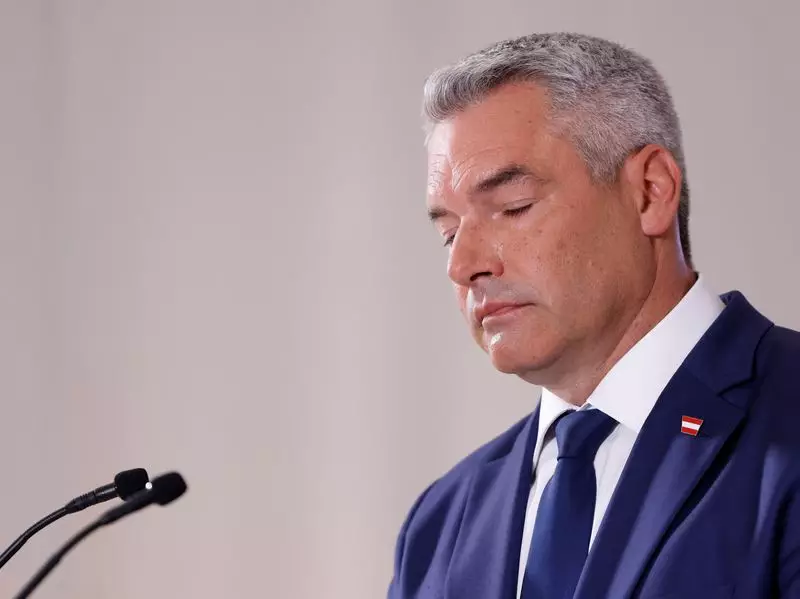Austria’s political landscape is currently fraught with tension and uncertainty following the resignation of Chancellor Karl Nehammer. His departure has prompted the ruling conservative party, the People’s Party (ÖVP), to convene in an emergency meeting aimed at selecting an interim leader. The abrupt collapse of coalition talks, first with three parties and subsequently with just two, has left the ÖVP grappling with an urgent need for stable governance. Reports indicate that Christian Stocker is poised to take over the reins temporarily, yet this situation underscores much deeper rifts within Austrian politics.
Nehammer’s intention to distance his party from the far-right Freedom Party (FPÖ) has not just shifted political alliances but has also laid bare the fragility of Austria’s coalition politics. The failed negotiations highlight the challenges of finding common ground amongst parties that have traditionally held divergent views. The ÖVP’s recent struggles reflect a larger crisis of legitimacy and strategy that may define the upcoming months.
With the FPÖ having emerged as the leading party in September’s elections, capturing nearly 29% of the vote, its rising popularity adds another layer of complexity to the political arena. The growing support for the FPÖ, which is characterized by Euroscepticism and a hardline stance on immigration, begs the question: how will the ÖVP respond to this shift in power dynamics? Governor Markus Wallner’s assertion that Austria must steer clear of sliding into a national crisis emphasizes the urgency of the situation. A snap election could elongate the process of establishing an effective government, pushing the country into protracted instability.
Interestingly, while Nehammer previously declared reluctance to engage with FPÖ leader Herbert Kickl due to perceived security threats and conspiracy theories, a change in leadership might signal a different approach. The ÖVP’s historical governance with the FPÖ, which ended dramatically in 2019 due to a corruption scandal, casts a long shadow over potential future coalitions. Would the ÖVP be willing to become the junior partner after being the senior coalition member? This question hangs heavily on the minds of party officials and constituents alike.
In light of today’s uncertain political climate, public sentiment is shifting. The FPÖ, having accused the ÖVP of borrowing its political ideas, has solidified its base and continues to advocate for a leadership change. Their statement, “Austria needs a Chancellor Kickl now,” indicates a confidence in their platform that resonates with a significant portion of the electorate. Moreover, the ideological overlaps between the ÖVP and the FPÖ, particularly regarding immigration policy, complicate the narrative of a center-right coalition resisting far-right influences.
Meanwhile, as discussions of possible candidates for the ÖVP leadership evolve, figures like Wolfgang Hattmannsdorfer emerge as potential successors to Nehammer. Their relative anonymity compared to previous figures raises doubts about their ability to instill confidence or provide a guiding vision for the party. This follows a trend of disillusionment with established political figures who have been embroiled in scandal or controversy. The ÖVP must navigate these leadership transitions carefully if it hopes to regain public trust.
As President Alexander Van der Bellen prepares to address the nation, the focus will inevitably be on the paths forward for Austrian governance. With diminutive room for alternatives, the specter of either another coalition with the FPÖ or a snap election looms large over future discussions. The amalgam of party politics, public sentiment, and external pressures hints at substantial changes ahead.
For Austria to stabilize and re-establish trust in its political mechanisms, the ÖVP must perform a careful balancing act—embracing its conservative principles while maintaining a degree of distance from the far-right ideologies that unsettle many. The outcomes of this political turbulence will not only define the ÖVP’s immediate future but will also shape the broader trajectory of Austria’s governance in the years to come. As the nation navigates these choppy waters, it is essential for political leaders to address the electorate’s concerns while exploring new alliances that could foster a more cohesive political environment.

